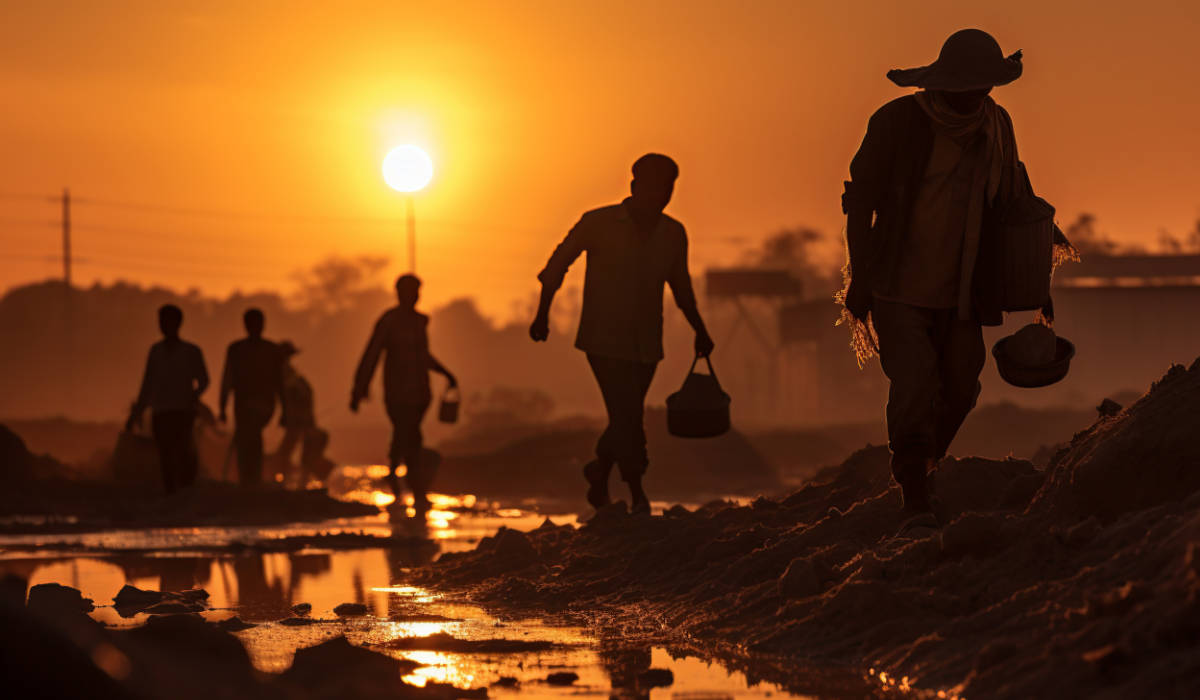COP28 will be hosted in the United Arab Emirates (UAE) from 30 November – 12 December 2023, making it the second successive year that the COP will be held in a member of the UNFCCC’s Arab Group of oil-rich nations. It will be the first time that a CEO, in this instance the CEO of the national oil company, ADNOC, will lead the negotiations as COP President.
Such a dual role has already attracted controversy and concerns as to whether this COP has been captured by a standing army of oil executives and their lobbyists.
Nonetheless, the UAE COP Presidency has played a significant role in shaping this round of COP negotiations, emphasising the Global Stocktake as a clear signal that it will be about action. The Global Stocktake is like an audit of progress. And so far the picture does not look good. The implementation of actions will have to take place in the context of a growing geoeconomic fracture and uneasiness between north/south relations.
Progress on key targets in mitigation and adaptation are grindingly slow with developing countries suffering the most.
Take for instance the recent report from UNEP highlighting that the current adaptation finance gap is now estimated to be US$194-366 billion per year. Developing countries need approximately US$387 billion per year to implement their Nationally Determined Contributions (NDCs) and National Action Plans (NAPs). Adaptation finance flows to developing countries declined by 15 per cent to US$21 billion in 2021.
In addition to parity between adaptation and mitigation finance, we hope that COP28 will accelerate the proposed reforms to the global financial architecture.
Tweet
Regarding climate finance reforms it is clear that none of these reforms can occur in isolation of broader reforms in the global finance architecture and the key to ensuring the scaling up of funds for climate and development lies in multilateral development agencies bolstering capital allocations and refining lending practices.
In addition to parity between adaptation and mitigation finance, we hope that COP28 will accelerate the proposed reforms to the global financial architecture, which have been discussed at various summits and events this year, and achieve meaningful progress on the New Collective Quantified Goal on Climate Finance (NCQG).
The global need for climate finance runs into trillions of dollars not the meagre $100 billion (a target that is wholly outdated). The African Climate Foundation’s paper Priorities for an Equitable Reform of the Global Financial System – The African Climate Foundation launched at the African Climate Summit provided an overview of the global finance landscape and where it falls short.
The early principles of the ‘polluter pays’ concept, or if you have used up your share of the global carbon budget you have a moral responsibility to address the resulting environmental damage and to back your words with a financial commitment, form the basis for the principle of common but differentiated responsibility (CBDR). However, there is a growing perception that this principle is being watered down. In fact, it was a bit of a bone of contention at the Africa Climate Summit (ACS) hosted by the Ruto Presidency in early September of this year. For Africans the CBDR remains a core principle and at the heart of the negotiations and is a theme running through the big issue for Africa and other developing countries – the issue of a global fund for Loss and Damage.
The recent Africa Climate Summit highlighted the ambition and appetite of African countries in pursuing a strong global mitigation outcome that achieves a 1.5oC future despite Africa’s paltry contribution to the share of global greenhouse gas emissions. For Africa, fair finance for greater energy access and clean energy transitions is tied with a broader development agenda of economic diversification and structural reforms. The same applies to adaptation. Hard-wire it as part of economic growth and development. The ACF’s work on Adaptation and Resilience Investment Platforms is aimed at moving from foreign aid for adaptation to economic and fiscal resilience to deal with climate risk.
Africa is shifting the narrative, moving it away from those who have always spoken on behalf of the continent without residing here, towards what it deems its paramount mission: the recognition that economic resilience paves the way for climate resilience.
Tweet
This COP represents a pivotal opportunity for adaptation to garner comparable political attention to the longstanding focus on mitigation. It will be crucial for African countries to witness the global goal on adaptation (GGA) gain the prominence it deserves.
In particular African countries are looking for an overarching target (similar to the 1.5 degree temperature goal) that “enhances the adaptive capacity and resilience of the global population, including the reduction of climate impacts by at least 50% by 2030, and by at least 90% by 2050 compared to the business as usual scenario and expected impacts identified by scientific reports.”
Increasingly, Africans are also looking towards enabling trade regimes that can facilitate new climate investments and risk management measures. Some of this is being reflected in the negotiations of the new round of Africa Growth and Opportunity Act (AGOA) currently taking place in South Africa. Trade that fosters regional integration and development is also key to integrating essential minerals, unlocking new values and opportunities as Africa increases its demand for clean energy, battery storage and electric vehicles. Africa is shifting the narrative, moving it away from those who have always spoken on behalf of the continent without residing here, towards what it deems its paramount mission: the recognition that economic resilience paves the way for climate resilience.
The umbrella of global stocktake should give COP countries and non-state actors their marching orders. Whether we patiently await COP decisions or proactively take actions regardless, remains to be seen.
Saliem Fakir is the Executive Director of the African Climate Foundation


